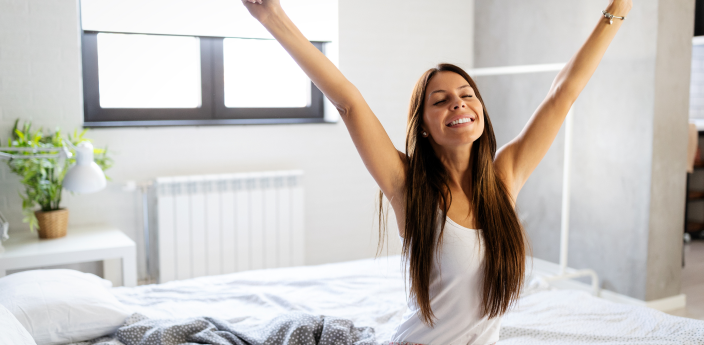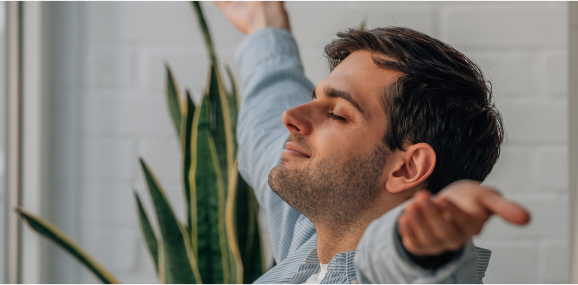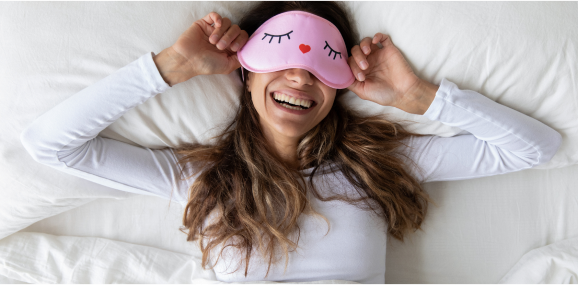Good quality sleep is essential for our overall health and well-being. But, it seems good sleep is hard to find these days.
Bad sleep habits, irregular sleep patterns, feelings of stress and anxiety, and so much more can derail our opportunity for good sleep. But have no fear, there is hope for weary and restless souls.
It’s time to go back to the basics — way back.
10 Powerful Tips to Make You Sleep Like a Baby
Here, we provide some great tips to get you sleeping like a baby again. All you’ll need is some willpower and a touch of consistency.
1. Be Consistent With Your Sleep
Your body functions off of your internal clock, known as your circadian rhythm, which sticks to the 24-hour cycle of night and day. Your sleep works best when it sticks to that cycle, too. Irregular sleeping patterns can really mess with this sleep cycle.
So, just like a newborn, establishing a healthy sleep schedule is essential for better sleep. That means going to bed and waking up at the same time every day — weekends included. Consistency is key.
In time, your sleep pattern will adjust – so don’t give up!
2. Give the Sleep Pod a Try
If you want to sleep like a baby, you gotta sleep like a baby.
There’s a reason babies are swaddled when they’re being put to sleep. The gentle pressure helps relax and calm them. The same principle applies with the Sleep Pod.
Using the therapeutic ideas behind Deep Touch Pressure Stimulation, the Sleep Pod helps provide gentle, calming pressure all night long, soothing the tension that comes from all that adulting.
Get ready for an eight-hour hug.
3. Find a Relaxing Routine
It is easy to let the stress and worries of the day crush us as we lie in bed. But, the key to sleeping like a baby is kicking stress out of the bed. Find something to help wind you down at least 30 minutes before going to bed.
It could be something you find relaxing, like reading a good book or writing in a journal. It could involve relaxation exercises, like breathing, meditation, mindfulness, or progressive muscle relaxation.
Find something calming that works for you and make it part of your nighttime routine.
4. Say No to the Electronics in Bed
One of the most important tips in recovering baby-like sleep is saying no to electronics in bed. Electronics include those with back-lit LED screens, like smartphones, e-readers, tablets, computers, and televisions.
While binging your favorite show in bed might be fun, the blue light that is emitted from these electronics disrupts your sleep-wake cycle.
So, if sleeping like a baby is your goal, say no to electronics in bed (or before bed).
5. Don’t Neglect Daily Exercise
If you are looking to sleep like a baby, you cannot neglect regular, daytime exercise. Exercise not only helps boost your energy during the day, but it also helps improve your overall mood.
Daily exercise can also pay dividends come bedtime, helping you feel ready to hit the hay when the time comes. Strive to get at least 30 minutes of moderate aerobic exercise per day. It could be walking, jogging, hiking, or whatever suits your taste.
Just remember, exercise increases energy and alertness, so avoid it at least three hours before bed.
6. Get Outside More
Don’t be afraid to soak up some sun during the day. Our sleep-wake cycle takes its cues from the environment, namely sunlight. In effect, exposure to light during the day helps keep the circadian rhythm active and working.
Light helps shut down melatonin production, which is an important sleep hormone. The result is wakefulness. At night, once the light starts fading, we start feeling sleepy as melatonin production begins again.
Point of the story: Keep your days bright and your evenings dark.
7. Avoid Late-Night Meals
Yes, it is true that babies do eat at all hours of the night and day — but that doesn’t give you permission to.
Seriously, if you want a productive night of sleep, it is best to avoid eating large meals at night – no less than three hours before bed.
At the end of the night, it comes down to digestion. Digestion can disrupt sleep, not to mention there’s a greater potential for acid reflux. Also, foods rich in carbohydrates and sugar might keep you up as well.
So, do yourself a favor and eat earlier.
8. Ditch the Caffeine and Alcohol at Night
Caffeine is another thing that should be avoided during the evening. As a stimulant, the effects of caffeine can linger for hours in the body, disrupting sleep or making it completely elusive. This includes drinks like coffee, teas, and sodas.
It's best to avoid caffeine after 2 to 3 p.m.
You should also avoid alcohol before bed, as even a couple of drinks could negatively impact your sleep and disrupt your sleep cycle later in the night.
No coffee and no nightcap — bummer now, but better sleep later. Plus, we’re just talking in general. Your Irish coffee can be invited to dinner every once in a while.
9. Keep It Quiet & Cool
When restful sleep is the goal, the sleeping environment matters. A bedroom that is too loud or too warm doesn’t make for ideal sleeping conditions. It could leave you tossing and turning. In fact, high temperatures can reduce sleep efficiency.
If noise distractions are an issue, it may be time to look for a fan or white noise machine to help drown out the unwanted sounds. In terms of temperature, the optimal sleep temperature is somewhere between 60 to 67 °F.
So, keep it quiet and keep it cool.
10. No Napping During the Day
Yes, babies take naps. But you’re not a baby. The truth is, daytime naps could do more harm than good when it comes to settling in for the night.
Even if you’re dealing with daytime sleepiness, a late afternoon nap might actually make those symptoms worse — and disrupt your sleep cycle later on.
So, fight the urge to take a daytime snooze.
Conclusion
Good sleep is hard to find for many people. Irregular sleep patterns, stress, and bad habits tend to get in the way. But, there is good news: Better sleep is possible. Next time you get the urge to sleep like a baby again, give these tips a try — no crib required.
Sources:
Relaxation Exercises to Help Fall Asleep | Sleep Foundation
The inner clock-Blue light sets the human rhythm | NIH
Effects of caffeine on sleep quality and daytime functioning | NCBI
The Effects of High-Temperature Weather on Human Sleep Quality and Appetite | NIH

































500,000+ happy customers